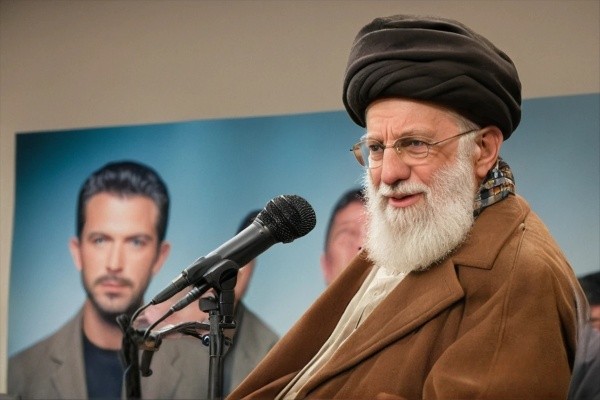Iran’s Plan to Strike Back Against the U.S.
Iran’s Military Preparations Following U.S. Attacks
Loading...

Iran’s Supreme Leader Vows "Harsh Punishment" for Israel After Killing of Hamas Leader Ismail Haniyeh in Tehran
Iran's Supreme Leader Ayatollah Ali Khamenei has vowed "harsh punishment" for Israel in retaliation for the killing of Hamas's political leader Ismail Haniyeh in Tehran. The incident has sparked tensions and raised concerns about potential wider repercussions in the region.
Background and Response from Iranian Leadership
Iran's Supreme Leader, Ayatollah Ali Khamenei, has strongly condemned the killing of Ismail Haniyeh, who was in Tehran for the inauguration of President Masoud Pezeshkian. Khamenei emphasized that avenging Haniyeh's assassination is Tehran's duty, as it occurred within the Iranian capital. He further stated that Israel had provided the grounds for "harsh punishment" for itself.
Three Days of Mourning and Funeral Arrangements
In response to Haniyeh's killing, Iran has announced three days of public mourning across the country. A funeral ceremony is scheduled to be held in Iran, followed by the transfer of Haniyeh's body to Doha, Qatar, where he will be buried on Friday.
Israeli Response and Potential Repercussions
Israel has not officially commented on the attack, but it has previously vowed to target Haniyeh and other Hamas leaders. The situation has raised concerns about potential escalations in the region, with speculations about possible Iranian retaliation against Israel. The Iranian Revolutionary Guard Corps (IRGC) has condemned the attack and warned of a "harsh and painful response" from the resistance front, especially from Iran.
International Reactions and Concerns
The killing of Haniyeh has drawn reactions from various international actors. Palestinian President Mahmoud Abbas has condemned the assassination, while Pakistan has described it as a "reckless act" and a dangerous escalation in the already volatile region. The incident has also prompted concerns about the potential for further destabilization and conflict in the Middle East.
Potential for Escalation and Regional Implications
The assassination of Haniyeh in Tehran has raised fears of wider repercussions and potential escalation in the already tense region. Analysts have highlighted the possibility of significant consequences, including the potential for an Iranian attack on Israel. The situation is being closely monitored for its potential impact on regional stability and security.
Conclusion
The killing of Hamas's political leader Ismail Haniyeh in Tehran has sparked strong reactions from Iranian leadership, with Supreme Leader Ayatollah Ali Khamenei vowing "harsh punishment" for Israel. The incident has raised concerns about potential escalations and wider repercussions in the region, prompting international reactions and highlighting the delicate balance of power in the Middle East.
Editor
Iran’s Military Preparations Following U.S. Attacks
Troops remain in five strategic locations, raising fears of renewed tensions and long-term occupation.
Opposition forces have taken control of the capital after a significant offensive. Here is how it unravelled.
